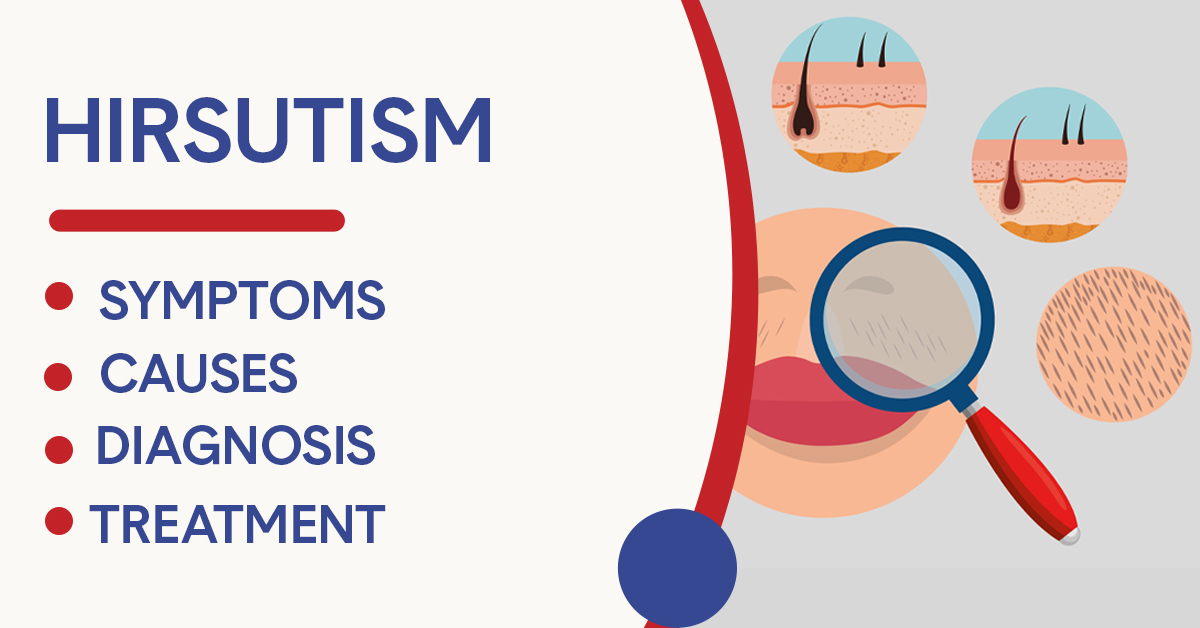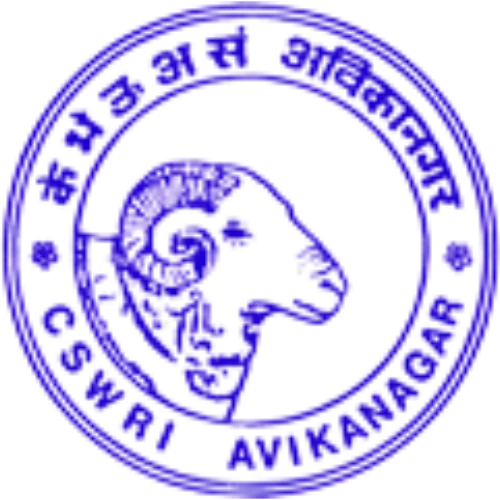What is Hirsutism?
A woman with hirsutism has excessive coarse hair that shows a male pattern. Hair follicles are exposed to high levels of the male hormone androgen in the blood or on the hair follicles themselves.
Most women with mild hirsutism have elevated levels of circulating androgens, as do most women with more severe hirsutism, though the severity of hirsutism is not necessarily correlated with the level of circulating androgens.
It is important to recognize that hirsutism can lead to diminished self-esteem and harm one’s body image. Due to unwanted hair, many women with hirsutism feel unfeminine and embarrassed.
They also hide their hair growth and avoid physical contact with others to hide their appearance. The difficulty of removing hair can be time-consuming, expensive, and frustrating, so many hirsute women are depressed by the process.
However, women’s attitudes toward their hirsutism vary widely. They can find it neither bothersome nor humiliating.
Symptoms of Hirsutism
A person with hirsutism grows hair excessively in a pattern similar to that of a male. It may appear over the upper lip, chin, chest, back, lower abdomen, around the anus, around the genital area, or on the in front of the thighs.
Thick and dark hair usually indicates a problem, so it is noticeable. Excessive levels of androgen can also lead to some of the following:
- Voice deepening
- A skin condition associated with oiliness and acne
- Reduction in breast size
- Recessing hairline in males similar to balding
- Expansion of Clitoris
There are some other symptoms may present depending on the underlying cause. These may include:
- Gaining weight or becoming obese
- Periodic irregularities
- Fertility problems
- Cushing’s disease causes striae and thinning of the skin
Causes of Hirsutism
It is unknown in many cases what causes hirsutism. In fact, hirsutism may be caused by several conditions. These conditions include:
- The natural production of male hormones (androgens). A woman’s hair follicles are more sensitive to androgens if she has high levels of androgen or if her levels of androgen are higher than normal.
- Polycystic ovarian syndrome (PCOS). An excessive amount of androgen is produced by a woman in this condition. In addition to acne, irregular periods, weight gain, and/or fertility issues, women with PCOS may also suffer from diabetes, insulin resistance, and weight gain.
- The hormonal changes can also lead to increased facial hair in menopause (mustache and whiskers).
- Other more serious conditions. Symptoms of hirsutism that occur suddenly along with other male characteristics, such as deeper voice, acne, or increased muscle mass, may indicate a more serious condition, such as an adrenal or ovarian disorder.
- There are certain medications that can cause hirsutism:
- Anabolic steroids
- Cyclosporine (Sandimmune®)
- Minoxidil (Loniten®, Rogaine®)
- Danazol (Danocrine®)
- Testosterone
- Glucocorticoids
- Phenytoin (Dilantin®)
Risk Factors of Hirsutism
According to research, the following factors may contribute to hirsutism:
- Family history – When a patient has a family history of conditions that can cause hirsutism, such as polycystic ovary syndrome, the chances are high that this condition will develop as well.
- Lineage – This condition is more common among women from the Middle East, Mediterranean, and South Asia regions.
- Bodyweight / Obesity – A woman who is overweight, or obese, can produce more androgen, causing hirsutism.
Complications of Hirsutism
Hereditary hirsutism can cause emotional distress. Many women experience self-consciousness as a result of having excess hair. They may suffer from depression. Hormonal imbalances underlying hirsutism can lead to physical complications as well, even though hirsutism itself does not cause them.
Hirsutism and irregular periods may indicate polycystic ovary syndrome, which can reduce fertility. Because of the risk of birth defects, women who take certain medications to treat hirsutism should avoid pregnancy.
Diagnosis of Hirsutism
It is important to consult a doctor if you are experiencing any of these symptoms of hirsutism. Before ordering any tests, your doctor will ask you a few questions and perform a physical examination.
Women are evaluated to learn about any health conditions that may increase their risk for this condition based on their family history and medical history. If you are taking any medications, you should inform your doctor so that your condition is not exacerbated.
In some cases, even steroids and hormonal supplements can lead to this condition. If your doctor determines that you have PCOS, she may examine your menstrual cycle after your physical exam.
If hirsutism and irregular periods have only recently begun occurring, additional tests may be required. During these tests, the adrenal glands and the ovaries will be evaluated for health conditions.
Mild hirsutism may not produce any visible signs, and it may not require additional blood tests to measure testosterone levels, follicle-stimulating hormone levels, and luteinizing hormone levels.
Several imaging tests such as pelvic examinations, sonography, and CT scans are recommended in the case of a suspected pelvic mass. Several other hormonal tests may also be performed, along with tests for cholesterol and blood sugar.
Treatment of Hirsutism
The doctor will perform some diagnostic tests to confirm the cause, whether it is hirsutism or not.
Medications
- Oral contraceptives (OC)
Medications containing estrogen and progestin can help treat hirsutism, which is caused by an excess production of androgen in the body. Such medications are called birth control pills. Pregnant women are given birth control pills to avoid pregnancy. Headaches and nausea are the most common side effects of this.
- Anti-androgens
As the name suggests, anti-androgens prevent the body’s androgen receptors from attaching to testosterone. After taking OCs for six months, your doctor will prescribe them if needed.
Generally, spironolactone is an anti-androgen used to treat hirsutism. It is usually not noticeable for at least six months after starting treatment.
Women may experience irregular menstrual cycles. Taking these drugs may cause birth defects, so contraception is very important while taking them.
- Topical cream
Eflornithine (Vaniqa), a lotion for excessive facial hair growth in women, is effective. Your doctor will tell you to apply the lotion twice a day to the affected area of your face.
Many patients utilize this in conjunction with laser therapy to improve the treatment’s response.
- Procedures
Procedures produce longer-lasting outcomes than self-care alternatives.
- Laser therapy
This process involves passing a highly concentrated beam of light over your skin to destroy the hair follicles and inhibit future hair growth. You may need many treatments. Photo epilation is preferred for black, brown, and auburn-haired women.
- Electrolysis
A tiny needle with an electric charge will be inserted into each hair follicle by your doctor. This electric current destroys the hair follicles. This procedure necessitates many treatments as well. It is a better choice for women with naturally blond or white hair.
It is a painful but efficient therapy method. To alleviate the pain, your doctor will most likely use a numbing cream.
Hirsutism Preventions
It is not always possible to control hirsutism. A well-balanced diet and regular exercise, on the other hand, can help control weight and lower the risk of high cholesterol and diabetes.
Avoiding unneeded drugs that have been linked to hirsutism can also help to lower the risk.





















 Disclaimer: The information on the Web Site is provided for informational purposes only and is not meant to substitute the advice provided by our doctor or other health care professional. You should not use the information available on or through the Web Site for treating a health problem or disease or prescribing any medication. All images used on this website are for illustrative purposes only,
Disclaimer: The information on the Web Site is provided for informational purposes only and is not meant to substitute the advice provided by our doctor or other health care professional. You should not use the information available on or through the Web Site for treating a health problem or disease or prescribing any medication. All images used on this website are for illustrative purposes only,